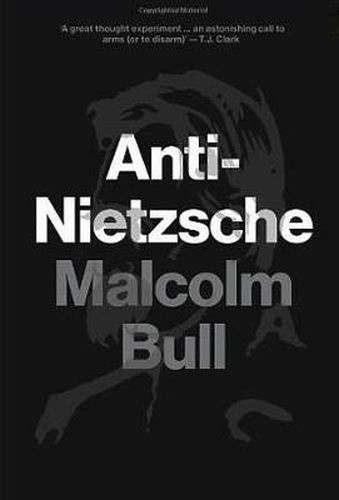Readings Newsletter
Become a Readings Member to make your shopping experience even easier.
Sign in or sign up for free!
You’re not far away from qualifying for FREE standard shipping within Australia
You’ve qualified for FREE standard shipping within Australia
The cart is loading…






Nietzsche, the philosopher seemingly opposed to everyone, has met with remarkably little opposition himself. He remains what he wanted to be- the limit-philosopher of a modernity that never ends. In this provocative, sometimes disturbing book, Bull argues that merely to reject Nietzsche is not to escape his lure. He seduces by appealing to our desire for victory, our creativity, our humanity. Only by ‘reading like a loser’ and failing to live up to his ideals can we move beyond Nietzsche to a still more radical revaluation of all values-a subhumanism that expands the boundaries of society until we are left with less than nothing in common.
Anti-Nietzsche is a subtle and subversive engagement with Nietzsche and his twentieth-century interpreters-Heidegger, Vattimo, Nancy, and Agamben. Written with economy and clarity, it shows how a politics of failure might change what it means to be human.
$9.00 standard shipping within Australia
FREE standard shipping within Australia for orders over $100.00
Express & International shipping calculated at checkout
Nietzsche, the philosopher seemingly opposed to everyone, has met with remarkably little opposition himself. He remains what he wanted to be- the limit-philosopher of a modernity that never ends. In this provocative, sometimes disturbing book, Bull argues that merely to reject Nietzsche is not to escape his lure. He seduces by appealing to our desire for victory, our creativity, our humanity. Only by ‘reading like a loser’ and failing to live up to his ideals can we move beyond Nietzsche to a still more radical revaluation of all values-a subhumanism that expands the boundaries of society until we are left with less than nothing in common.
Anti-Nietzsche is a subtle and subversive engagement with Nietzsche and his twentieth-century interpreters-Heidegger, Vattimo, Nancy, and Agamben. Written with economy and clarity, it shows how a politics of failure might change what it means to be human.